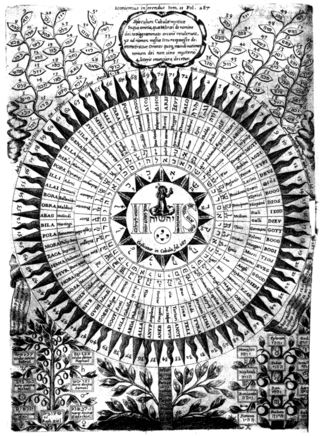Jah is an abbreviated form of Jehovah, a name of God.
Contents
JAH or Jah may also refer to:
Jah is an abbreviated form of Jehovah, a name of God.
JAH or Jah may also refer to:
Jah or Yah is a short form of יהוה (YHWH), the four letters that form the tetragrammaton, the personal name of God: Yahweh, which the ancient Israelites used. The conventional Christian English pronunciation of Jah is, even though the letter J here transliterates the palatal approximant. The spelling Yah is designed to make the pronunciation explicit in an English-language context, especially for Christians who may not use Hebrew regularly during prayer and study.
Jehovah's Witnesses have been criticized by adherents of mainstream Christianity, members of the medical community, former Jehovah's Witnesses, and commentators with regard to their beliefs and practices. The Jehovah's Witness movement's leaders have been accused of practicing doctrinal inconsistencies and making doctrinal reversals, making failed predictions, mistranslating the Bible, harshly treating former Jehovah's Witnesses, and leading the Jehovah's Witness movement in an autocratic and coercive manner. Jehovah's Witnesses have also been criticized because they reject blood transfusions, even in life-threatening medical situations, and for failing to report cases of sexual abuse to the authorities. Many of the claims are denied by Jehovah's Witnesses and some have also been disputed by courts and religious scholars.

There are various names of God, many of which enumerate the various qualities of a Supreme Being. The English word god is used by multiple religions as a noun to refer to different deities, or specifically to the Supreme Being, as denoted in English by the capitalized and uncapitalized terms God and god. Ancient cognate equivalents for the biblical Hebrew Elohim, one of the most common names of God in the Bible, include proto-Semitic El, biblical Aramaic Elah, and Arabic ilah. The personal or proper name for God in many of these languages may either be distinguished from such attributes, or homonymic. For example, in Judaism the tetragrammaton is sometimes related to the ancient Hebrew ehyeh. It is connected to the passage in Exodus 3:14 in which God gives his name as אֶהְיֶה אֲשֶׁר אֶהְיֶה, where the verb, translated most basically as "I am that I am" or "I shall be what I shall be", "I shall be what I am" In the Hebrew Bible, YHWH, the personal name of God, is revealed directly to Moses. Correlation between various theories and interpretation of the name of "the one God", used to signify a monotheistic or ultimate Supreme Being from which all other divine attributes derive, has been a subject of ecumenical discourse between Eastern and Western scholars for over two centuries. In Christian theology the word is considered a personal and a proper name of God. On the other hand, the names of God in a different tradition are sometimes referred to by symbols. The question whether divine names used by different religions are equivalent has been raised and analyzed.
Attack may refer to:
Yah may refer to:
JW may refer to:
Jahbulon or Jabulon is a word which is allegedly used in some rituals of Royal Arch Masonry and derivations thereof.
The pineapple is a tropical plant, and also refers to the edible fruit it bears.
A number of splinter groups have separated from Jehovah's Witnesses since 1931 after members broke affiliation with the Watch Tower Bible and Tract Society of Pennsylvania. Earlier group defections from the Watch Tower Society, most of them between 1917 and 1931, had resulted in a number of religious movements forming under the umbrella term of the Bible Student movement.
Betrayal is violation of trust.
Jehovah's Witnesses believe salvation is a gift from God attained by being part of "God's organization" and putting faith in Jesus' ransom sacrifice. They do not believe in predestination or eternal security. They believe in different forms of resurrection for two groups of Christians: that the 144,000 members of the anointed will be rulers in heaven and that "the other sheep" or "the great crowd" will live forever on earth.
Jehovah is a reading of the name of God in Abrahamic religions.
Yahweh is a reconstruction of the name of the God mentioned in the Hebrew Bible.
JWS may refer to:
The Tetragrammaton is the four-letter scriptural name of the God of Israel.
Soulja or Souljah may refer to:
Sikandar is the Persian rendition of the name Alexander. When the Greek king Alexander the Great conquered Persia, the Persians called him Sikandar, meaning "defender" or "warrior". It is a variant of Iskandar.

The Bible usually uses the name of God in the singular, generally using the terms in a very general sense rather than referring to any special designation of God. However, general references to the name of God may branch to other special forms which express his multifaceted attributes. The Old Testament reveals YHWH as the personal name of God, along with certain titles including El Elyon and El Shaddai. Jah or Yah is an abbreviation of Jahweh/Yahweh, and often sees usage by Christians in the interjection "Hallelujah", meaning "Praise Yah", which is used to give God glory. In the New Testament the terms Theos, Kyrios and Patēr are additionally used to reference God.
Perry Mason is a fictional criminal defense attorney, in works of detective fiction written by Erle Stanley Gardner.
Jah Hut may refer to: